You can read this exclusive content thanks to the FALATH & PARTNERS law firm, which assists American people with Slovak roots in obtaining Slovak citizenship and reconnecting them with the land of their ancestors.
"It was really amazing. I had expectations that it would be nice, but it was even better. And everyone was, you know ... it was very much open arms!"
This is how David Feher, a New York-based sports lawyer, began his interview with The Slovak Spectator. A few weeks ago, he visited Slovakia as part of his application for Slovak citizenship.
Although he has been reading The Slovak Specator a lot lately to get a feel for Slovakia, visiting the place in person is, he notes, a very different experience.
Originally, his plan was to go to Budapest, because his father's side of the family is ethnic Hungarian and he has not been there since 1984. However, he and his immediate family decided to relax a little and went to the High Tatras where they stayed for three days at a mountain resort in Štrbské Pleso.
"The scenery was just beautiful. I took photos and I've been showing them to all my friends, much to their surprise," he said. When asked about whether people in the US mistake Slovenia and Slovakia, he said they do.
"I thought about taking a day trip to where my grandmother and great-grandfather came from, but it didn't quite work out. But everyone in my family is like: 'Oh, we're coming back!'"
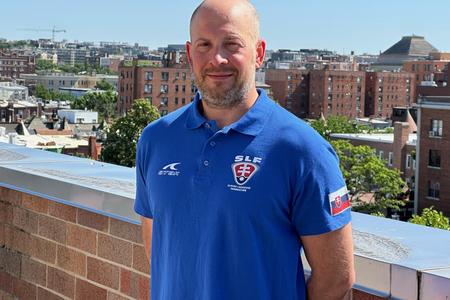
"It's who I am"
During the interview, this sentence came up a lot in regards to his Slovak ancestry. When asked about what he means by this, Feher had this to say:
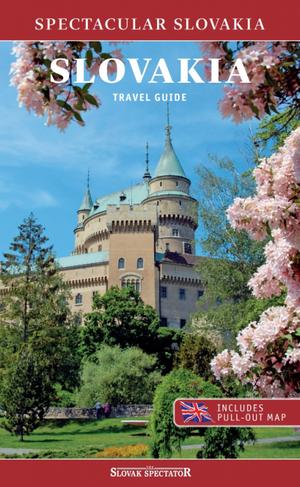 A helping hand in the heart of Europe offers a travel guide of Slovakia. CLICK TO LEARN MORE. (source: Spectacular Slovakia)
A helping hand in the heart of Europe offers a travel guide of Slovakia. CLICK TO LEARN MORE. (source: Spectacular Slovakia)
"From the time I was born, it's always been who I am. It's like saying how does the air you breathe give you life? It forms you and is present in you every minute of every day. It's like when I visit eastern Europe and walk around, people look a lot more like me and that's kind of funny. When it comes to my name, everyone is like: 'Oh yeah, it's just a normal name.' When I'm eating pastries or food, it's what my mother used to cook."
Growing up, Feher remembers stories about the "old world" in which his father and other relatives would talk about soldiers staying in villages after World War I and marrying, and about people who worked in coal mines in Slovakia and then went on to work coal mines in the US.
"When I was a kid, I saw a lot of my relatives suffering in their old age as a result of working in the mines. It sticks with you, because you saw their hard life. They came over with very little and made lives here, trying to work their way up, be accepted," he says.
"It's also a story of transition. I was told: 'This is not where I want you to stay. Make us proud.' That stuck with me. I grew up in Pittsburgh, there were a lot of ethnic groups, but it was like, be proud of your heritage. It's a big part of the American experience," Feher explains, adding that not long ago he met the CEO of a huge business who told him the story of how his family had come from Cyprus to America, how they struggled, but how they ultimately built a business.
This, in Feher's opinion, instils in you a desire to work hard, to treat your family well, and and to be part of a shared community and to try and help other people in that community.
"Always appreciate where you came from. Always know where you came from," he says, adding that people are now much more aware of their heritage and from where they come. He is passing all of this on to his daughter, who is 29. The reason is that he admits he has done well and has had a totally different life compared to his ancestors, who had it tough. His mother's sister died young in the 1920s of diphtheria, and his relatives who worked in the mines died in their late 40s or early 50s due to lung problems.
"Sometimes my family thinks I'm a little bit Pollyannaish and too optimistic. But I would much rather maybe be a little disappointed than to expect the worst of people. And I think that if you expect the better side of people, then it encourages that behaviour too."
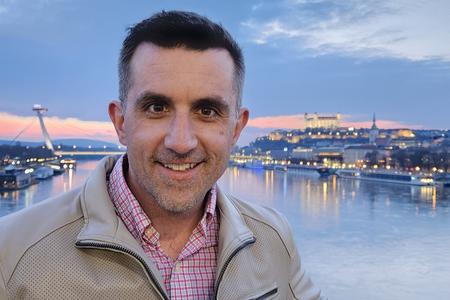
A tough choice
Feher himself is from a family of ten; his oldest brother was born in 1941.
His father was born in the US, in the mining town of Florence, Pennsylvania, in 1909. This side of the family has Hungarian-Ukrainian roots. When he was about a year and a half old he went back with his mother and his older brother to their village of Chaslivtsi (previously known as Csaszloc), just south of Uzhhorod in present-day Ukraine, while Feher's grandfather stayed in the US and worked in coal mines. In 1927, the family came back to the United States. Feher's grandmother on this side of the family was born in the town of Mándok, northeastern Hungary, close to the border with Slovakia.
His mother's side of the family is Slovak.
"My great-grandfather Anton was born in Stropkov in the mid 1800s. He lived there his entire life, and died there too. When he married for the first time, he had three boys and a girl. The boys moved to the US at the turn of the century. I don't know what happened, but his wife died. He remarried and had three girls," Feher explains. The girl from the first marriage, Teresa Choby Milko, was Feher's grandmother.
"When she was 17, her father gave her two choices: either get married to someone her father would pick, or go to America to live with her brothers. She chose to go to America. I have a steamship registry: she came with $15.00 in her pocket and nothing else. I don't think she ever saw her father again. I know he died in the 1920s; the family got a letter."
"If my grandmother hadn't made that choice, I wouldn't be here."
She eventually married and her husband found a job at the Ford Motor Company in Detroit, where they ended up. Feher remembers that she spoke with a heavy Slovak accent, but that she never spoke Slovak in front of him. He doesn't know why she didn't, as he was very young at the time, but thinks it was largely because she wanted to make a clean break and start anew.
Feher's mother didn't speak anything besides English, but his father did speak Hungarian when they visited his side of the family. He too had a heavy accent.
"I didn't know a lot of the drama until I started to do the research. I got interested in potential citizenship a few years ago. Back then I saw Slovakia was considering changing its laws. I looked into Hungary for a little bit, but I would need to learn the language and I'm a disaster when it comes to languages," he says, adding that in the meantime he was hoping that Slovakia would open up a little bit more. When the law changed, he immediately looked up and contacted the best lawyers he could find.
"I've got past stage one, we are Slovaks living abroad. I hope I will be a credit to the Slovak people, restore our roots and be part of the community."
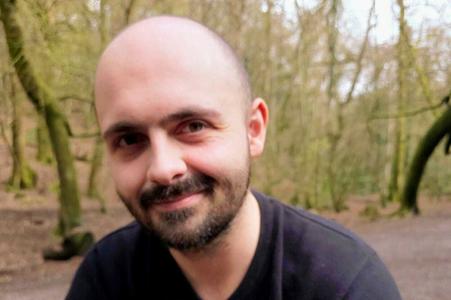
On becoming a lawyer
Feher's father wanted him to be an engineer, as he viewed that as the next step up from a blue-collar worker. However, Feher wanted to be a scientist. Eventually, he found out he was "totally ill-suited" for that and decided that, based on his love of politics and history, to transfer from technical school and study to become a lawyer instead.
Even though he did well, his father didn't believe in any of it – at least, until he brought home his first paycheck.
Feher started practising corporate law, but then, almost by accident, ended working in sports law.
"It's fundamentally about people not being treated like property. When I was growing up and when I was early in my career, if you were with the sports team, you were owned," he points out.
For example, he and his colleagues have represented the NFL and NBA Players' Associations, and college athletes, and won a landmark decision against the NCAA, the main student athletics association in the US, striking down restrictions on their educational benefits; he also represented the US Women’s National football (soccer) team in an equal pay case.
Not the only one
So far, Feher is not the only one in his immediate family to apply for Slovak citizenship: his daughter, Emily, is too. As for his own siblings and distant relatives, it's a little different.
"They're eager to hear what happens and and they're kind of curious, but for some of them it's less relevant in terms of the travel. I travel a fair bit, I want to travel, but they are more close to home, so to speak," he explains, adding that people on his mother's side of the family are more interested than on his father's side.
"Ultimately, they're curious and they're rooting for me because it's part of their shared history too."
Interestingly, through the process of applying, Feher found out he had a cousin who he didn't previously know about. The cousin is also interested in applying for citizenship, but Feher doesn't know where they've got to yet.
As for the whole process, Feher has this to say.
"It's not something you can do in just a week or a month, or just go to an embassy and fill out a form and get the citizenship. And I understand why, because you don't want to admit just anybody. And then you want to be sure that they meet all the qualifications in terms of the criteria. And is the right thing to do."
You also need to get the right documents in every family, such as birth and marriage certificates, you have to travel a lot, wait for the government offices to process the paperwork. Still, you might learn something new.
"I had never heard of the word 'apostille' until I went through this process!," says Feher, adding that there are international treaties and conventions as to how documents are authenticated so that they can be recognised in foreign countries.
Spectacular Slovakia travel guides
A helping hand in the heart of Europe thanks to our Slovakia travel guide with more than 1,000 photos and hundred of tourist spots.
Our detailed travel guide to the Tatras introduces you to the whole region around the Tatra mountains, including attractions on the Polish side.
Lost in Bratislava? It's impossible with our City Guide!
See some selected travel articles, podcasts, traveller infoas well as other guides dedicated to Nitra, Trenčín Region, Trnava Region and Žilina Region.


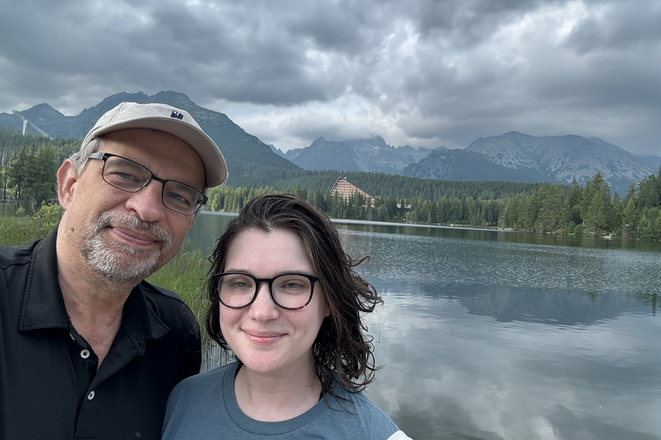 David Feher with his daughter Emily at Štrbské Pleso in Slovakia's High Tatra mountains. (source: Archive of D. F.)
David Feher with his daughter Emily at Štrbské Pleso in Slovakia's High Tatra mountains. (source: Archive of D. F.)
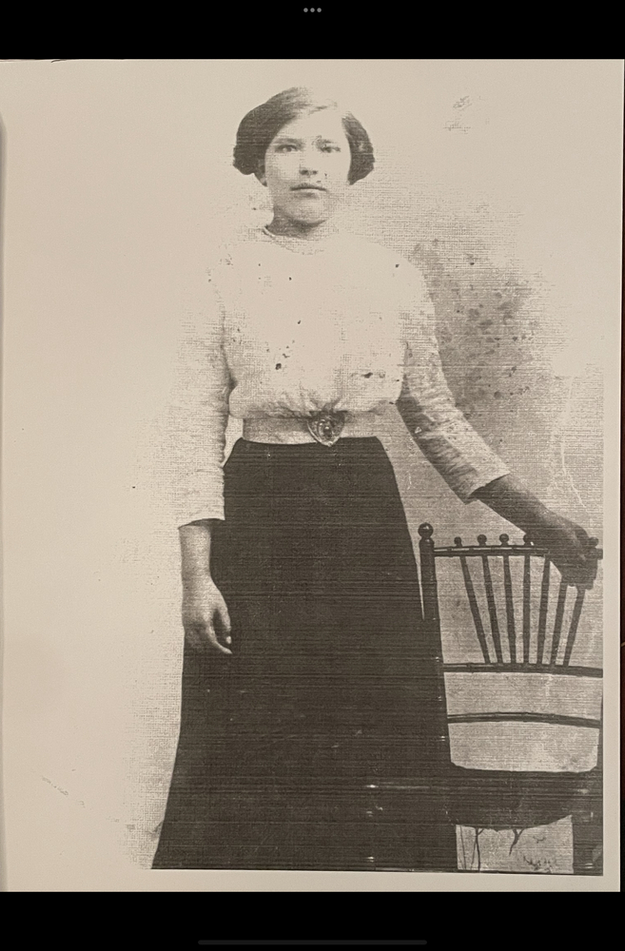 A picture of David Feher's grandmother Teresa Choby Milko. (source: Archive of D. F.)
A picture of David Feher's grandmother Teresa Choby Milko. (source: Archive of D. F.)
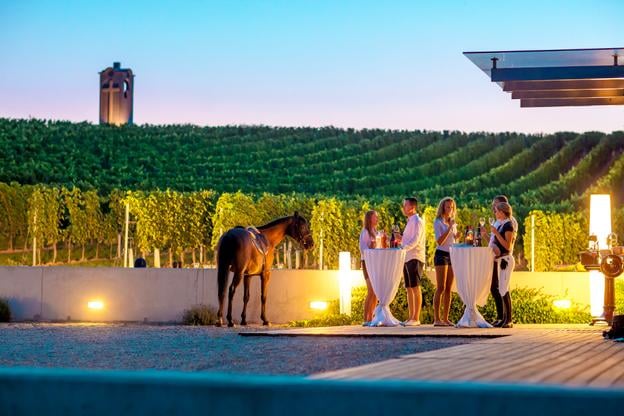 Terra Parna Winery (source: Courtesy of Trnava Región)
Terra Parna Winery (source: Courtesy of Trnava Región)